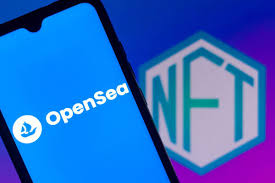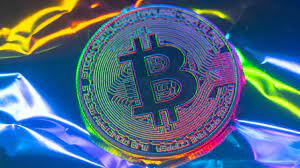Huawei enters the blockchain, the three giants are fighting
At the end of last year, 31QU had done an inventory of the major traditional Internet giants in the blockchain industry. At that time, the currency circle was in the dark moment when the winter came.
With the gradual recovery of the cryptocurrency market this year, various blockchain projects have begun to exert their strength.
At the same time, in April of this year, Huawei, Jingdong and Tencent among the Internet giants showed their own blockchain plans.
The Internet giants with strong technical strength and abundant funds will bring some earth-shattering changes to the small blockchain this year.
- Unless Aoben Cong can sleep for a year, he is not Nakamoto.
- In the era of blockchain traceability, where should the "target" of counterfeiting be pointed?
- Twitter featured: Mancoin network suspected of being stolen 100 million US dollars, the official claims to maintain
1
Huawei builds blockchain cloud
On March 20 this year, at the Huawei Cloud Hong Kong Summit, Deng Tao, president of Huawei Cloud Global Market, announced that Huawei's cloud service system based on blockchain technology is progressing smoothly. “To make Hong Kong a credible and transparent way through Hong Kong. The global financial and logistics center, Deng Tao said.
On April 17, at the Huawei International Symposium in Shenzhen, China, Huawei’s president of the cloud BU Zheng Yelai launched the “Huawei Blockchain White Paper” in addition to the 40 5G contracts.
For the private communication technology company that was born in 1987, in addition to the 5G folding screen, it also turned its attention to the blockchain.
Huawei's planning and ambitions in the blockchain are concentrated in this 59-page white paper.
On the whole, Huawei has mentioned two things in the white paper. One is how to continue to expand the market of Huawei cloud service platform, and the other is to think about how the blockchain application scenario will fall.
I remember that Ren Zhengfei, the head of Huawei, said in April 2018 that the blockchain has not mentioned the agenda for Huawei.
But in fact, as early as 2016, Huawei has begun to cultivate the blockchain field.
On May 31 of that year, Huawei joined the Financial Blockchain Cooperation Alliance (Golden Chain Alliance) to explore the alliance blockchain and application scenarios for financial institutions. This is the first Huawei layout in the blockchain industry.
In October 2018, Huawei also joined the Superbook Blockchain Alliance.
The "Super Book" was established at the end of 2015 and has been joined by more than 200 companies and organizations, including world-class companies such as Cisco, Hitachi, Intel and JP Morgan.
On September 5, 2017, Huawei announced that it has signed a cooperation agreement with the blockchain platform Fun Chain Technology. The two parties will cooperate in the blockchain technology platform and industry application level.
On January 9, 2018, Huawei and the Panda Green Energy and New Energy Exchange officially launched the blockchain plan to discuss the principles and development status of blockchain technology in physical business applications, and to study the microgrid and application of blockchain applications. Smart grid case, etc.
After a long period of hard work, Huawei has harvested its own results in the blockchain.
In March 2018, Huawei announced the cloud blockchain service platform and announced that it officially "entered" Russia. Based on open source blockchain technology, the platform aims to provide public cloud blockchain services for enterprises and developers, and promote the application of enterprise blockchain applications.
One year later, in March of this year, Huawei's cloud services increased from 20 to 50, and the available area (AZ) increased from one to three.
Cloud service is the explosion point of Huawei's blockchain. This is reflected in the recent Huawei blockchain white paper.
According to the white paper, Huawei Cloud (BCS) aims to “help companies easily enter the cloud era on the basis of security, efficiency, and non-tamperability, and quickly deploy new solutions and applications.”
In addition to cloud services, Huawei's blockchain also focuses on the application scenarios. The white paper summarizes them as “4 categories and 9 categories”, including data assets, IoT, operators and financial sectors.
"2018 is a year of loose soil, and there will be a scale explosion in 2019." Zhu Zhaohui, director of Huawei's blockchain industry, evaluated the blockchain.
Unlike Internet giants such as BAT, Huawei's technological achievements in chips, mobile phones and communication equipment have been particularly prominent.
Therefore, from the actual layout to the blockchain planning, Huawei has made every step in the blockchain field.
2
Tracing back to the main battlefield of Jingdong
Jingdong is also publishing a white paper with Huawei.
During this time, Liu Qiangdong, the head of Jingdong, can be described as a disaster. On the one hand, he was unable to extricate himself from being sexually assaulted on the other hand. On the other hand, he was criticized by the majority of netizens for his inappropriate comments on "996".
Affected by these two things, Jingdong's share price has continued to fall since April. The share price slipped from $31.26 on April 1 to the recent $29.65.
Since the beginning of this year, JD.com has shown signs of weakness, and the technological achievements of JD Financial Transformation have not been satisfactory. The net loss in 2017 was 2.1 billion U.S. dollars. But this did not stop Jingdong from joining the technology and joining the blockchain.
On April 9, Jingdong released the White Paper on Blockchain Technology Practice in Jingdong District (2019).
According to the white paper, the blockchain of Jingdong District has been applied in five areas: quality traceability, digital deposit certificate, credit network, financial technology and value innovation.
The technology needed to realize the five major application scenarios is also the reserve that JD.com has made for the transformation of technology.
Jingdong also regards blockchain technology as a key force field. Cao Peng, vice president of digital technology at Jingdong, said that blockchain technology has become the fourth core technology capability of Jingdong Digital Technology after data technology, artificial intelligence and IoT.
It is worth noting that this is not the first time that JD.com has released a blockchain white paper. As early as last April, JD.com has released the first blockchain white paper.
Compared with last year, this year's white paper, in addition to further clarifying the five major application scenarios, also added Jingdong's series of landing cases in the blockchain field.
Jingdong’s thinking on the blockchain is also deeper. The white paper points out the future development trend of blockchain technology: the rise of self-developed bottom layer, the large-scale application of BaaS platform, and the deeper development in the field of financial technology.
In addition, this year's white paper also introduces the architecture of the blockchain in Jingdong. The "JDChain" is the core engine and open source. The JD BaaS platform is dedicated to providing flexible and easy-to-use and scalable blockchain system management capabilities.
Like Huawei, Jingdong’s attention to the blockchain is also “has been around for a long time”.
As early as June 2016, Jingdong joined the Golden Chain Alliance with Huawei and Tencent. Before June 2017, Jingdong had been trying to combine financial and blockchain.
After that, JD.com shifted its focus to the field of traceability.
Six months later, JD.com established a safety food blockchain traceability alliance, and successively added blockchain traceability services to its products, and wanted to build a cross-border e-commerce platform based on blockchain technology traceability to achieve “full traceability”. ".
We have seen that compared with Huawei's focus on Huawei's cloud services and application scenarios, JD.com is more focused on traceability. And traceability has gradually become the main battlefield of the blockchain in Jingdong District.
One detail is that at the end of March this year, among the 197 filing services disclosed by the Internet Information Office, Jingdong was filed with four blockchain services, leading the BATJ and becoming the Internet giant with the most blockchain information. However, the technology giant Huawei did not check the filing of the report.
As the second-largest e-commerce service platform in China's market capitalization, in the competition with the old-fashioned powerhouses such as Taobao and Tmall, Jingdong has successively lost, but in the blockchain field, Jingdong's layout has not fallen behind.
3
Tencent releases blockchain game
At the time when Jingdong and Huawei released white papers, Tencent took a different approach and released a “blockchain game”.
As early as April 12, 2018, Cai Yongge, general manager of the blockchain business of Tencent, released the blockchain game codenamed "Catch the demon together". One year later, "Together to catch the demon" officially opened the public beta, and dominated the APP list.
This is an AR game. In "Catch the Demon Together", the player becomes a sorcerer, explores the real world around him, and collects the demon around him.
However, in the game, the player almost does not feel the "blockchain" exists. Although Tencent has defined "to catch the demon together" as a blockchain game, most of the introductions on the official website of "Catch the Demon" are about AR. There has not been a "blockchain" word.
So, does the game really use blockchain technology?
The answer is yes. When the player's game level reaches 22 or above, he will get a "special cat" carrying blockchain technology. This brightly colored, looks cute cat can make "game assets go up", so that players can really The assets that own this game will not be changed by the developers.
In addition, there are no blockchain traces in the game.
For the players in the coin circle, "Catch the demon together" is not a standard "blockchain game". It does not have the Token economy, or the traditional point card and item sales model. The blockchain is in it and only plays the record. "The role of the girl."
However, this is still an attempt to graft blockchain technology in the traditional game mode, but there is no substantial exploration for the entire cryptocurrency world.
In fact, as early as 2015, Tencent has established a blockchain team and began to explore the development path of the blockchain.
On January 8, last year, Tencent announced the Trusted Blockchain (TrustSQL) project, calling it "a safe and efficient solution for building blockchain infrastructure."
A few days later, Tencent released the "Blockchain Solution White Paper", which wrote Tencent's self-controllable blockchain infrastructure to provide users with enterprise-level blockchain solutions.
This also means that Tencent has a complete strategic layout in the blockchain field.
4
White paper similarities and differences
In addition to the above three companies, other Internet giants such as Ali, Baidu, and NetEase have also published their own blockchain white papers at different times.
Interestingly, the white papers of each family have many similarities.
First of all, the major Internet giants do not mention cryptocurrencies.
In March 2018, the Tencent Security Anti-fraud Lab, the United Nations Industrial and Commercial Administration (Shenzhen, Guangdong) anti-macapour monitoring and governance base officially released the "Tencent 2017 MLM Situational White Paper". According to the white paper, overseas funds, virtual currency, and ICO projects are all MLM properties.
Tencent CEO Ma Huateng personally said that the blockchain is an innovative technology, but the issue of cryptocurrency is very risky, and Tencent will not get involved.
Zheng Yelai, president of Huawei Cloud BU, once said that Huawei is doing technology, and the money is too fast. Huawei is not at ease.
Meng Zhaoli, dean of the Jingdong Financial Research Institute, said that the blockchain is not equal to the currency circle. Technology is neutral, and the key is to look at the areas and scenarios of the application.
The difference is that each family has different choices in the specific landing scene of the blockchain.
Zhang Xiaojun, director of the blockchain project of Huawei, said that the future blockchain is an ecosystem that integrates the cloud, network and chip.
In the four typical application scenarios of Huawei's blockchain layout, Huawei is also more focused on data collection, IoT device management and new energy.
Jingdong focuses on the practice of quality traceability and logistics documents. From this point of view, JD.com hopes to apply the dividends brought by blockchain technology to its pillar industry e-commerce.
In general, unlike the blockchain native companies, the traditional Internet giant's attitude toward the blockchain is more about the application of its technology, and ultimately want to feed back the blockchain technology back to the traditional industry.
Conclusion
Historical experience has repeatedly shown that no matter anyone, any organization, only in keeping with the pace of science and technology, can survive in the turbulent business community.
Once the pursuit of technology ceases, no matter how powerful this person is, this organization will eventually be annihilated by history.
Born in sorrow and sorrow, the Internet giant, although the blockchain has not yet become a pillar industry in the true sense, no one dares to underestimate the powerful potential of blockchain technology.
Text: 31QU Zhong Benyu
Source: 31QU
We will continue to update Blocking; if you have any questions or suggestions, please contact us!
Was this article helpful?
93 out of 132 found this helpful
Related articles
- Science | Take you to explore the mystery of the decentralized exchange structure (on)
- People with communist labor vouchers issue "coins"
- BaaS vendor competition: different tracks and different postures
- Interview with Zhu Jiaming: The era of blockchain and currency diversification is coming
- OK first disclosed OKUSD issue: Based on OKChain, anchoring USD, compliance is the primary purpose
- Babbitt column | Is the blockchain field more suitable for small companies to start a business, or is the big company self-improvement?
- Tencent's cat: How did the blockchain cats come together to catch the demon?






